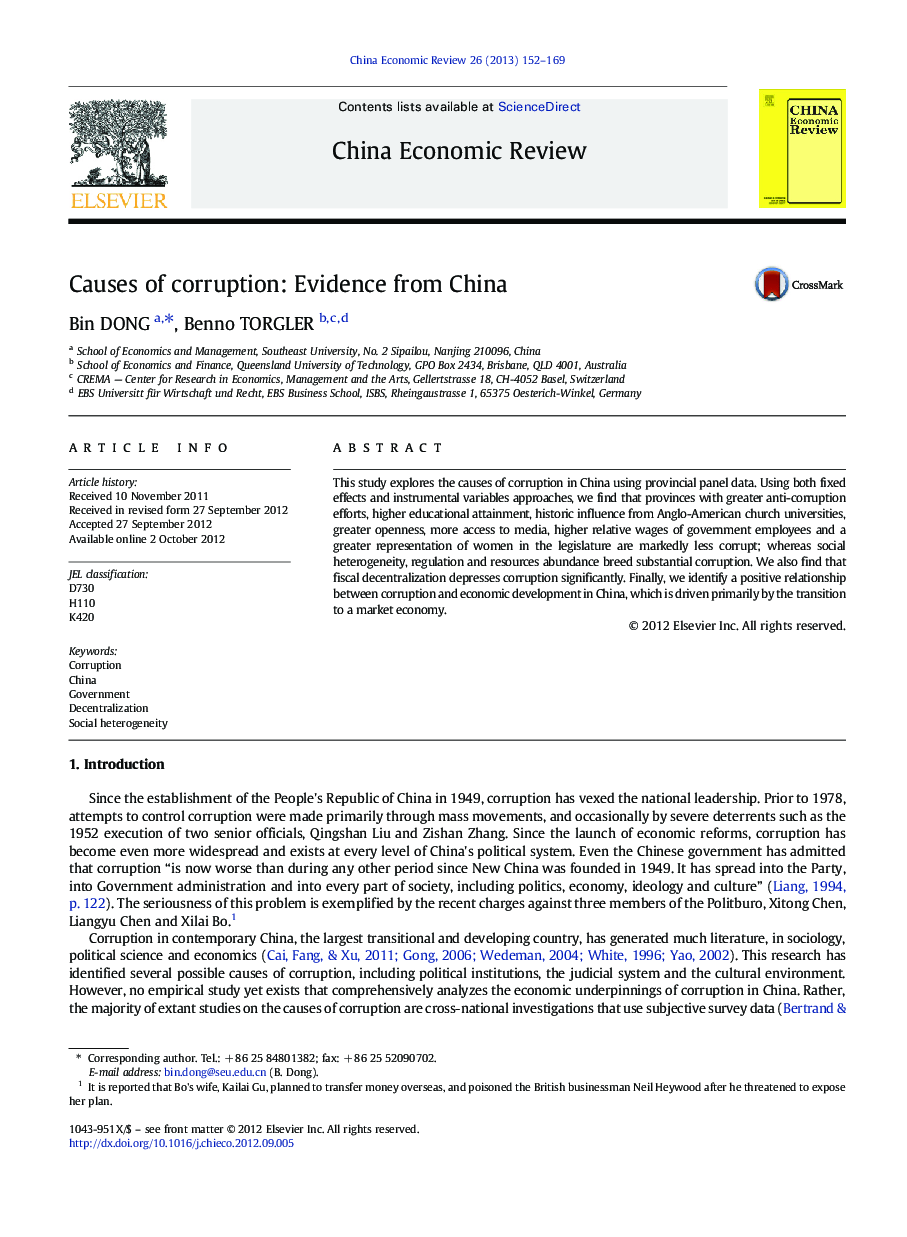| Article ID | Journal | Published Year | Pages | File Type |
|---|---|---|---|---|
| 5047578 | China Economic Review | 2013 | 18 Pages |
This study explores the causes of corruption in China using provincial panel data. Using both fixed effects and instrumental variables approaches, we find that provinces with greater anti-corruption efforts, higher educational attainment, historic influence from Anglo-American church universities, greater openness, more access to media, higher relative wages of government employees and a greater representation of women in the legislature are markedly less corrupt; whereas social heterogeneity, regulation and resources abundance breed substantial corruption. We also find that fiscal decentralization depresses corruption significantly. Finally, we identify a positive relationship between corruption and economic development in China, which is driven primarily by the transition to a market economy.
⺠We study the causes of corruption in China with provincial panel data. ⺠Educational attainment, trade openness and news media curb provincial corruption. ⺠Fiscal decentralization and high relative wages of officials prevent corruption. ⺠Social heterogeneity, regulation and resource abundance breed regional corruption. ⺠Economic development has a positive effect on corruption in current China.
